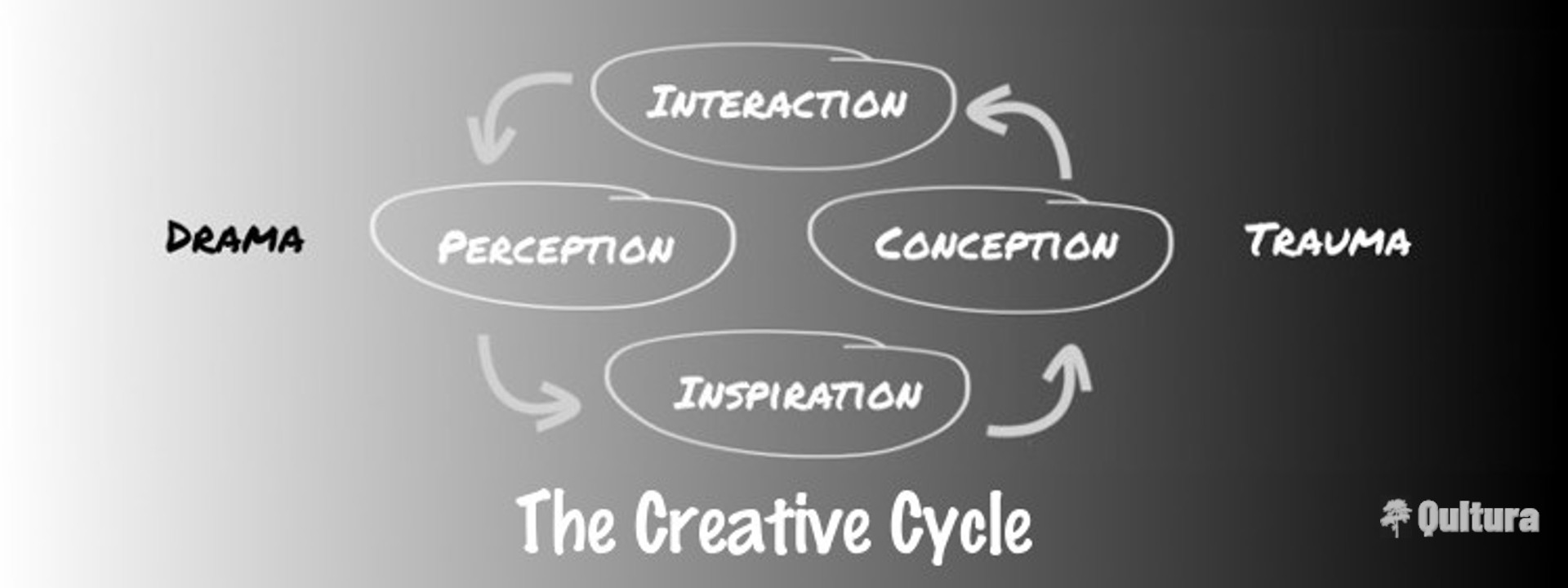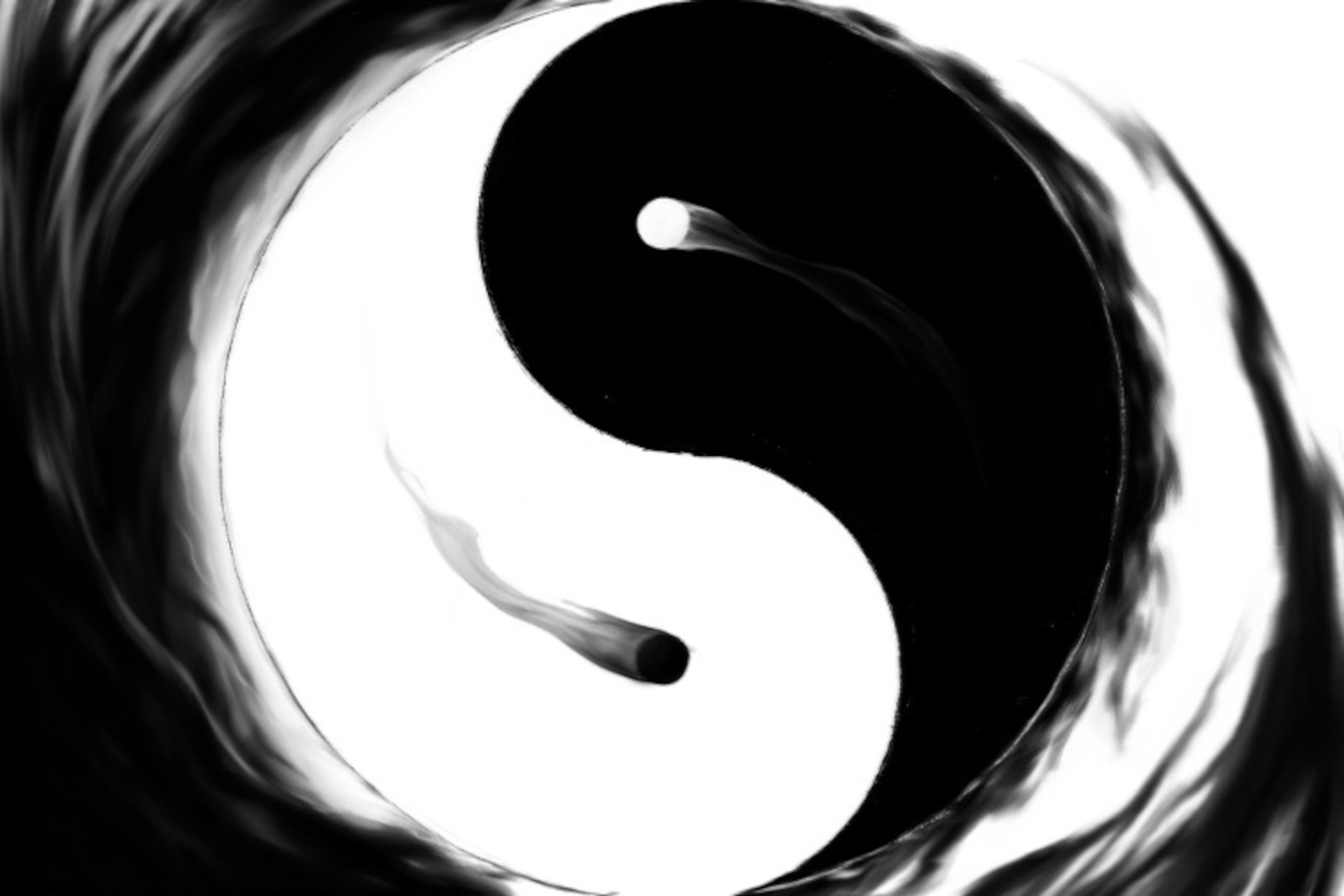
To properly understand trauma we need to differentiate trauma from suffering and also understand how trauma is relative to karma because death, like life, is also part of reincarnation. Using the example of death, which from our perspective is as close as you can possibly get to absolute trauma, death is that point in the life cycle where one incarnation ends and another incarnation begins. Therefore if there is such a thing as a Qultura perspective then the life you are living right now is life after death, because the starting point of life is death of the physical body and the event of both the loss of consciousness and the destruction o the Ego.
But here it is important to understand in that in terms of our common cultural understanding of death we think of death in terms of the end of life of a living organism as a single event and from a Qultura perspective which emphasizes consideration of possibility over attachment to a specific belief, this is a somewhat limited understanding of death.
Just as life is a process within a cycle, the same is true of death, which is also a process within a cycle. Within the terms of a life cycle until the mid-point of the life cycle, the peak of the wave, life predominates over death from conception and birth to full maturity and what we understand to be middle age. From the mid-point of the cycle until the trough, which we all commonly understand to be actual death, death progressively starts to predominate over life. We age, we get weaker, we develop health conditions, parts of our body start failing and becoming less efficient, and we gradually decline. In other words, assuming that 40 is the mid-point in life, we start to die in our 40's, then a little more in our 50's, then a little more in our 60's, and so on.
You cannot separate life from death and vice versa because they are two sides or aspects of the exact same process, i.e. the life cycle.
Another thing to understand, which is also key to understanding trauma, is that death can occur across any of the three physical dimensions of life. Therefore death is something we can experience not just to our physical bodies, we can experience death on an emotional and psychological level for example or when our life just completely falls apart and nothing in our life work out. We are still very much alive in terms of our physical body, but there could be a time when the kind of life we are living no longer works out. You might not see this as death, which is okay, but it is still trauma. Similarly a relationship between two people can die and no longer be viable, which also results in trauma.
The relationship between trauma and karma
So we start with the Creative Law meme above (and also on the webpage about karma) which serves the same purpose to Qultura as the yin yang symbol does to Taoism.
Click here to see an image of the yin yang symbol

There are two states of existence which are in a duality or polarity - chaos and equilibrium. Chaos is of course disruption, death, disorder, decay, separation, division and so on, whereas equilibrium is balance, flow, harmony, cohesion, connection and unity.
This gives us the two polar opposites in the Creative Law meme - drama and trauma. Trauma is force, violence, separation, division. Drama is the absence or mitigation of force and separateness, therefore drama is all about working towards connection, unity, cohesion, balance, flow and equilibrium. Consider that dramatic art is acting, movie making, theatre, and the performing arts. The job of the actor is to somehow convince us that the movie or stay play they are appearing in is real and is really happening as an event and that we are witnessing it. If you can understand how a movie can start from an idea and create a whole sense of reality from that idea, then you understand the basis of dream weaving, which is essentially all about drama.
But getting back to the main point which is the relationship between trauma and karma. Karma is a process of creativity and interaction arising out of memory (or what was). Trauma is always the start of a new karmic process, and trauma exists on some cosmic level to force change - which brings us back to one of the basic premises of Qultura - all existence is change, all existence is relationship.
We can see therefore on some level that karma is also a process of healing, recovery and growth from previous trauma. An example of this is mental illness. People who struggle with mental health issues generally do so as a consequence of some form of trauma. But they don't always stay mentally ill in the same state all the time. Recovery from mental illness is often inevitable but also just as often people who struggle with mental health issues are often in circumstances and conditions where they are either re-traumatized or triggered, and so mental illness can be seen as a process of cycles where they recover and become triggered or experience further trauma which brings them back to square one. Keep in mind that generally the recovery process for mental health issues is a lot longer than for physical health issues. Emotional and psychological trauma hits much harder than physical trauma and in some cases can be a lifelong process.
The relationship between trauma and suffering
So this is where we come to another important aspect of Qultura - the relationship between trauma and suffering. Trauma is environmental, natural and to some degree in our life experience inevitable. This is not just for the fact that we will all one day die, But other people we know and love will also die and also relationships we are part of will die. As a consequence we will all at some point in our lives experience grief which is also a very clear example of trauma.
This brings us to the third principle or basic premise of Qultura. All trauma and suffering arises out of separateness and division.
At first glance this seems to be remarkably similar to the foundation premise of Buddhism, i.e. 'All suffering is manifest out of craving and attachment' but the Qultura premise is much broader and places the emphasis not on the attachment and existence of desire (which is what craving is) but on the separateness and divisions created by the trauma and suffering. There is some common ground, i.e. that attachment and craving results in suffering, but the Qultura premise is inclusive of trauma because suffering is an additional emotional and psychological layer on top of trauma, and often the attachment and craving also manifests out of trauma. This is a very important distinction when it comes to experiences of addiction and compulsive behaviour.
Similarly the approach Qultura takes is radically different from that of Buddhism, which primarily advocates meditation practice and mindfulness, generally working towards nirvana or enlightenment. In terms of Qultura you are already enlightened, irrespective of whether you are consciously aware of this reality or not. The fundamental issue is separateness and perception of self as being separate to environment and also perception of self as being separate from other. This is the issue which Qultura is designed to address and this can only be resolved through seeking connection and unity with both environment and other through community.
So while trauma is natural and environmental, suffering is cultural, emotional, psychological and optional. We will look at the relationship between desire, attachment and suffering in the next webpage 'What is Core Being?' which is about Core Being, Unmind and what is known as traumatic mindsets.